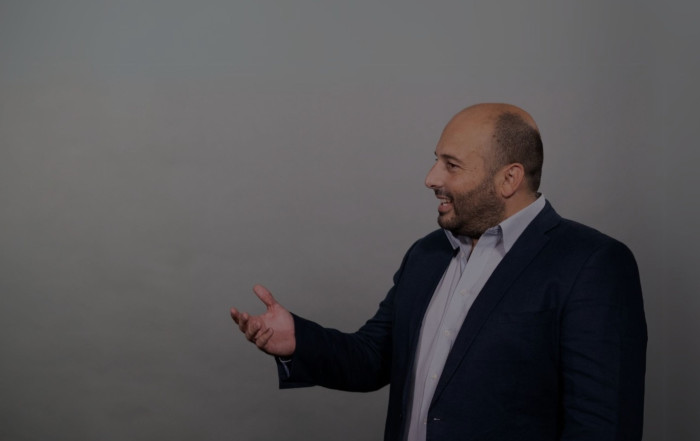For many years, I fiercely condemned my parents and emphasised their imperfections. I concentrated on what they didn’t know. I focused on what they should have done. I was so focused on the harm created by their omissions. I was disappointed. I wanted better. I expected better.
When I went to friends’ houses, I compared how other parents were. I compared various aspects of others with features I did not enjoy in my parents.
Growing up, I sometimes underestimated the importance of the teachings and values that my parents instilled in me. As a young adult, I found their stringent standards and high expectations stifling. I craved freedom and independence, occasionally battling with them on unneeded boundaries.
I failed to understand the meaning of a commitment. My parents underlined the value of maintaining one’s word, yet I occasionally ignored this rule throughout my upbringing. I perceived this as excessive strictness and rigidity. My pals would make promises and only seldom keep them. I never understood why my parents made such a big deal about it.
I used to compare my family’s quality of life with that of others. I watched how others travelled overseas so frequently. How come they could wear branded clothing, but I couldn’t? This made me feel inferior. This made me feel inferior to my classmates. My father attempted to explain how useless this was, but all I saw was a disgruntled guy who couldn’t buy what the others could.
After much personal effort, I recognised that I couldn’t love my parents for who they are unless I let go of my expectations of what I thought they should be and the disappointment that came with it.
My parents did an excellent job. They tried their best with what they knew and had. They gave up their hopes and goals to raise my brothers and me.
Lesson Learned
I spent a lot of time dwelling on the omissions, the hurt, and the disappointment. This time could have been spent embracing and adoring my parents as they are—a couple of caring parents prepared to give up all to raise their children to their greatest potential. They taught us to be honest and true yet sufficiently assertive not to be taken advantage of.
As I began working in schools, seeing many parents, and working with many agencies for vulnerable children, I recognised how fortunate I was to be a Bartolo. To be reared by the parents that I got dealt.
As I began juggling relationships, work, and life, I frequently reverted to what my parents had taught me. The value system, discipline, love, and care I got, along with extensive treatment, shaped me into who I am today.
I now understand the importance of the discipline my parents instilled in me. Their severe regulations and high expectations were not intended to oppress me but rather to prepare me for the real world. This discipline has been the foundation of my work ethic, allowing me to endure difficult times while maintaining excellence in my professional life.
Another crucial lesson was understanding the significance of a vow. I realised that keeping one’s word is critical to establishing and sustaining confidence. Making reckless commitments taught me the hard way that dependability and integrity are essential in personal and professional interactions.
The most eye-opening lesson was that financial success does not imply personal fulfilment. True riches are found in the strength and quality of our connections. I’ve learnt to value my relationships with family and friends, understanding that they bring genuine support and joy.
Nowadays, I cherish the time I spend with my parents, respecting their comfort zones rather than striving to change or update their routines. I’ve discovered that the locations and rituals that make kids feel at peace are essential to their identity. Instead of imposing my modern values, I now enjoy joining them in their familiar settings, whether for a traditional dinner, discussing the past, or sitting together quietly. These experiences have proven invaluable, allowing me to connect with people deeply.
One of the most painful losses I’ve had was to let go of an idealised image of my parents and struggling to forgive them for whatever inadvertent hurt they may have inflicted. As children, we typically picture our parents as perfect people who satisfy our wants. However, parents are human beings with flaws and limits. It took me some time to let go of the idealised image and forgive them for their mistakes. This forgiveness was more than simply an act of compassion for them; it was also a critical step towards my personal growth and restoration.
Only by letting go of this ideal can a boy truly evolve into manhood. It entails accepting and loving our parents for who they are, regardless of their shortcomings. This acceptance does not entail endorsing any detrimental behaviour but accepting that they did their best with the available resources and information. It involves acknowledging their humanity and giving the same compassion and understanding we want.
Conclusion
To recap, my path of realising the worth of my parents’ upbringing has been transformative. It has taught me the importance of discipline, maintaining promises, and valuing relationships before financial gain. Most importantly, it taught me to value the knowledge of those before me. I am now internalising the elders’ words, absorbing strength and wisdom from their experiences. I appreciate the time I spend with my parents, respect their way of life, and embrace the teachings they have taught me. Throughout this journey, I’ve grown professionally and personally, learning to appreciate and respect the people who have influenced my life.
Share this Blog
Recent Thoughts
Rumours, Noise and Real Growth: Learning to Keep My Eyes on the Road
“Matthew is a closeted gay.”“Matthew jumps from woman to woman.”“He’s money-minded.”“I’ve heard he sees women for free if they ‘offer favours’.”“I’ve heard he’s
Ikigai vs. Workaholism: Why I’ve Given Up Perfectionism and Workaholic Tendencies
1) Facing Challenges Head-On Throughout my career, I've always faced problems head-on. Confronting challenges directly is part of who I am. However, there




